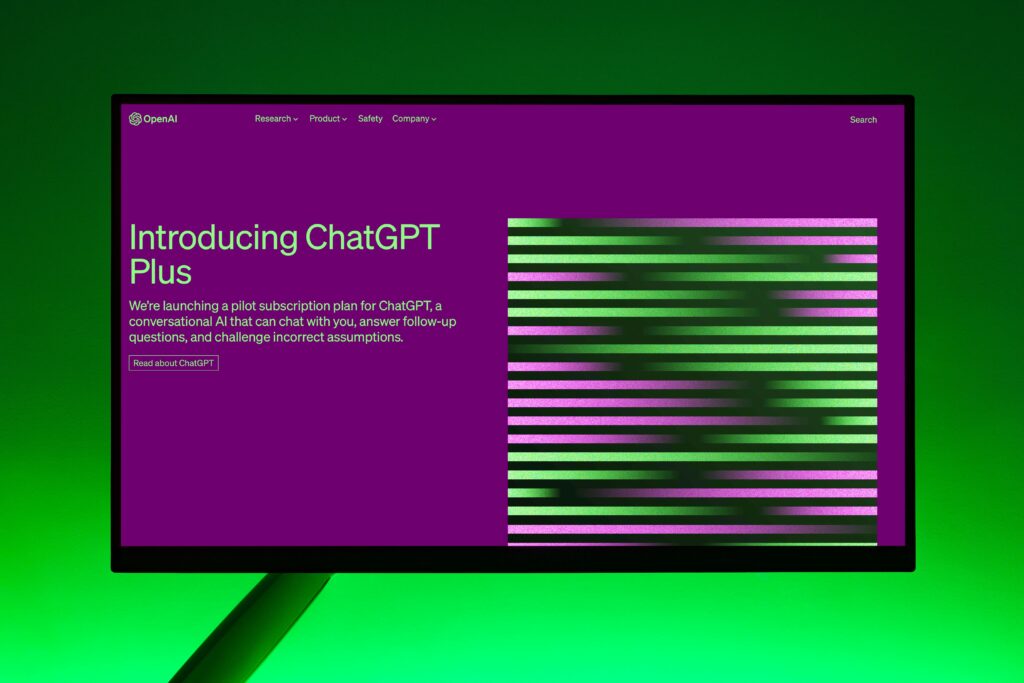Introduction: The AI Race 2025 Is Heating Up 🔥
The AI race 2025 is shaping up to be one of the most intense and transformative battles in tech history. With Apple, Google, and Microsoft all pouring billions into artificial intelligence, the competition is no longer just about innovation — it’s about domination. Each of these tech giants has a distinct strategy, from ecosystem integration to cloud-scale AI infrastructure, making the AI race 2025 a defining moment for the future of technology.
But who’s actually winning? While Google has long held a lead in AI research, Microsoft’s partnership with OpenAI has drastically changed the landscape. Meanwhile, Apple — often quiet in this space — is now making bold moves to integrate AI across its entire ecosystem. The AI race 2025 isn’t just a buzzword. It’s the battleground that will decide the next decade of consumer and enterprise tech.
In this article, we’ll explore each company’s current AI progress, strategies, and innovations. We’ll examine how they compare in practical applications, product rollouts, and long-term vision — so you can decide who’s really winning the AI race 2025.
Also read: emerging tech trends of 2025

Google’s AI Momentum: Still the Research Powerhouse?
When it comes to artificial intelligence, Google has long been recognized as the pioneer. In the AI race 2025, Google continues to leverage its deep research roots and infrastructure dominance to push boundaries. The company’s AI division, DeepMind, remains a global leader in foundational models, large language systems, and neural network efficiency. Furthermore, Google Brain and DeepMind’s merger has only accelerated this progress.
Key Developments from Google in 2025:
-
Gemini Ultra:
Google’s Gemini Ultra model, released earlier this year, competes directly with OpenAI’s GPT-5. It powers Bard, Google’s AI chatbot, and is now integrated into Google Search, Gmail, and Workspace apps like Docs and Sheets. -
AI in Search:
Search Generative Experience (SGE) has officially rolled out to most users worldwide. This tool uses AI to summarize complex queries and surface context-rich results — drastically changing how people search for information. -
Android AI Integration:
The Pixel 9 series features built-in Gemini AI tools, including real-time translation, contextual replies, voice commands, and smart image editing, enhancing the Android experience with seamless intelligence.
Despite these breakthroughs, Google faces new challenges. While it’s leading on research, its consumer product execution has occasionally lagged behind. For example, Bard had a slow adoption curve compared to ChatGPT, and privacy-conscious users are increasingly skeptical of Google’s data handling practices.
Nevertheless, in the AI race 2025, Google still commands enormous influence — especially in foundational AI science and cloud services through Google Cloud AI. Its advantage lies in scale and data, but whether it can maintain that lead in the face of agile competitors remains to be seen.

Microsoft’s AI Strategy: Integration Is the Name of the Game
In the AI race 2025, Microsoft is capitalizing on its tight partnership with OpenAI to gain a competitive edge. Unlike Google, which focuses on research dominance, Microsoft emphasizes practical deployment — particularly across its suite of enterprise and productivity tools.
Microsoft’s AI Highlights in 2025:
-
Copilot Across the Ecosystem
Microsoft 365 Copilot, now embedded into Word, Excel, Outlook, and Teams, has revolutionized how businesses operate. These tools leverage GPT-4 Turbo and, in some enterprise tiers, GPT-5, to assist with tasks like summarizing meetings, drafting emails, and generating data insights.
Consequently, productivity workflows are now heavily AI-assisted across corporations. -
Windows 12 AI Integration
With the launch of Windows 12, Microsoft introduced a dedicated Copilot sidebar in the taskbar. This allows users to interact with an always-available assistant that can control system settings, explain error messages, and help with creative tasks — all natively supported. -
Azure OpenAI Services
Microsoft’s cloud platform continues to lead in enterprise AI services. Azure now hosts AI workloads for thousands of companies, offering scalable access to models like GPT-4, DALL·E, and Whisper. As a result, many developers and businesses prefer Azure for AI deployment over Google Cloud or AWS.
recent AI advancements from OpenAI and DeepMind

What sets Microsoft apart is its speed of implementation. Instead of trying to build every model in-house, it’s efficiently packaging OpenAI’s best tech into tools people already use daily. This pragmatic approach allows Microsoft to stay competitive without needing to lead on the research front.
However, some critics argue that Microsoft is overly reliant on OpenAI and lacks innovation of its own. Still, in terms of mass adoption and market influence, it’s hard to deny that Microsoft has made AI more accessible and usable than ever before.
Apple’s AI Play in 2025: Subtle, Secure, and Strategic
While Apple isn’t always first to market with new technology, it often dominates through seamless integration — and 2025 is no different. Its approach to AI is more conservative than Microsoft or Google, but no less impactful.
Apple’s AI Highlights in 2025:
-
Apple Intelligence (AI) in iOS 19 and macOS Sequoia
In mid-2025, Apple launched its own AI framework called Apple Intelligence. Built directly into iOS 19, iPadOS, and macOS Sequoia, it focuses on privacy-first machine learning. Users now enjoy on-device summarization, smart notifications, grammar fixes in Mail, and improved photo organization — all without data ever leaving the device. -
Siri Finally Gets Smarter
After years of lagging behind Alexa and Google Assistant, Siri has received a long-overdue upgrade. With the power of Apple Intelligence and new large language models, Siri can now follow contextual conversations, handle follow-up questions, and interact with apps more fluidly.
Importantly, Apple achieved this while maintaining its reputation for strict user privacy. -
AI-Powered Hardware
New Apple Silicon chips — especially the M4 series — now include dedicated neural cores optimized for AI tasks. These power real-time transcription, voice dictation, and even object recognition in the Photos app. Consequently, AI is baked deeply into the user experience rather than being a separate “tool.”
Unlike Google and Microsoft, Apple has no plans to release a standalone chatbot. Instead, it embeds intelligence directly into native workflows. This quiet yet powerful strategy appeals to users who value privacy, simplicity, and seamless UX over flashy tech demos.
Still, some tech enthusiasts argue that Apple is playing catch-up and lacks the innovation seen in OpenAI or Anthropic models. But Apple’s loyal ecosystem and brand trust give it a unique advantage in driving AI adoption without needing to shout about it.

AI Showdown: Apple vs Google vs Microsoft in 2025
Now that we’ve explored each company’s AI playbook, how do they compare? While all three tech giants are advancing artificial intelligence in meaningful ways, their strategies differ significantly.
Innovation vs Integration
-
Google excels in open research, developer tools, and cutting-edge generative models. It leads in AI democratization, especially through Gemini and Android.
-
Microsoft has made the boldest moves in enterprise AI, thanks to its OpenAI partnership. It has seamlessly embedded Copilot into daily productivity apps.
-
Apple, by contrast, has focused on refining the user experience. It integrates AI more discreetly — enhancing device performance, personalization, and user privacy.
Ecosystem Strengths
-
Microsoft’s dominance is most visible in the corporate environment. With millions relying on Word, Excel, and Teams, Copilot is revolutionizing workflows.
-
Google remains dominant in search, cloud tools, and education. Its Gemini integration into Docs, Gmail, and Android gives it a massive distribution edge.
-
Apple thrives in the consumer hardware space. It continues to weave AI into the ecosystem of iPhones, iPads, and Macs in a way that feels intuitive and invisible.
Privacy & Ethics
-
Apple leads in on-device AI and user privacy — a critical factor as users become more aware of data misuse.
-
Google and Microsoft, on the other hand, push the limits of cloud-based generative AI, occasionally raising concerns over data handling, hallucinations, and misinformation.

Final Verdict: Who’s Winning the AI Race in 2025?
So, who’s ahead in the 2025 AI race? The answer depends on what “winning” means.
-
If innovation and research are the benchmarks, Google maintains the edge.
-
If we’re talking about practical productivity tools in the workplace, Microsoft holds the crown.
-
If the focus is on privacy-first user experiences, Apple is unmatched.
Ultimately, the AI race in 2025 isn’t about a single winner, but about how these giants push each other forward. Their unique strengths ensure that users — whether professionals, creatives, or casual consumers — benefit from smarter, more responsive technology than ever before.
As 2026 approaches, one thing is clear: AI is no longer a futuristic promise. It’s already reshaping how we work, live, and interact — and Apple, Google, and Microsoft are leading that charge in radically different but equally transformative ways.

